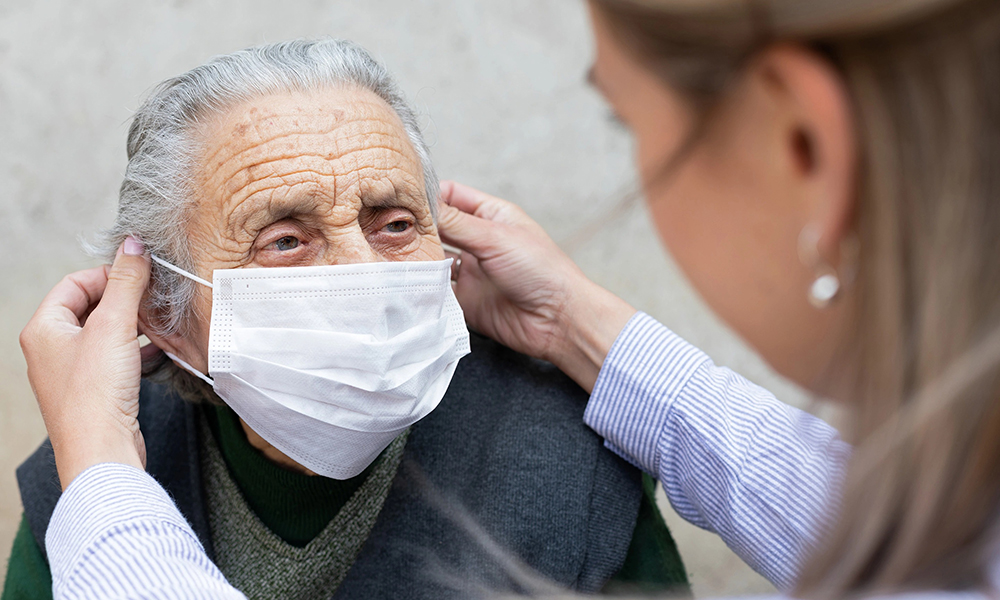
感染新冠肺炎会增加患一系列神经系统疾病的风险。
虽然长期新冠肺炎对人们的影响仍在进行批判性研究中,但新的研究发现,在初次感染后的一年内,该病毒可能会增加出现记忆问题甚至阿尔茨海默症的风险。
“这真的令人深思。”流行病学家和研究员齐亚德·阿尔-阿利(Ziyad Al-Aly)在接受波士顿公共广播网新闻台(WBUR)采访时说。“新冠肺炎并不像某些人想象的那么温和。”
华盛顿大学医学院和美国退伍军人事务圣路易斯医疗保健系统的研究人员利用美国退伍军人事务部的医疗保健数据库进行了该项研究,于上月发表在《自然医学》杂志上,该研究研究了大约15万名新冠肺炎确诊病例,与大约1100万名没有感染新冠肺炎的人进行了对比。
在感染新冠肺炎后的第一年,除了脑雾,人们还可能出现44种神经性大脑疾病。阿尔-阿利在采访中提到的一些症状是癫痫发作、头痛、焦虑、抑郁和阿尔茨海默症,根据该研究,如果你曾感染新冠肺炎,在初次感染后的一年内,出现其他神经系统疾病的可能性会增加42%。他说,感染新冠肺炎会加重大脑炎症,导致这些疾病的发展。
阿尔-阿利表示,虽然阿尔茨海默症通常需要数年才能逐渐发病,但阿尔茨海默症不是感染新冠肺炎直接导致的,而是会影响那些可能已经有这种疾病倾向的人。
他对波士顿公共广播网新闻台说:“感染新冠肺炎在某种程度上加速了疾病的发展。比方说,一个人在80岁或85岁时可能会患上阿尔茨海默症,现在他们60岁了,突然会在61岁的时患上阿尔茨海默症。”
目前还不清楚为什么有些人感染新冠后会有不良反应,而其他人则没有,但基因、健康背景和病毒毒株都可能是影响因素。
“我们需要非常认真地对待这种感染。”他说。“我们目前已知的是,长期新冠肺炎的一些症状可能会随着时间的推移而改善,但其他一些症状,如阿尔茨海默症……这些是终身性疾病。”
阿尔-阿利补充说,接种疫苗并不能预防新冠,但可以降低患长期新冠肺炎的风险,并且“仍然是我们公共卫生应对措施的基石”,因此,他建议人们采取预防措施。(财富中文网)
译者:中慧言-王芳
感染新冠肺炎会增加患一系列神经系统疾病的风险。
虽然长期新冠肺炎对人们的影响仍在进行批判性研究中,但新的研究发现,在初次感染后的一年内,该病毒可能会增加出现记忆问题甚至阿尔茨海默症的风险。
“这真的令人深思。”流行病学家和研究员齐亚德·阿尔-阿利(Ziyad Al-Aly)在接受波士顿公共广播网新闻台(WBUR)采访时说。“新冠肺炎并不像某些人想象的那么温和。”
华盛顿大学医学院和美国退伍军人事务圣路易斯医疗保健系统的研究人员利用美国退伍军人事务部的医疗保健数据库进行了该项研究,于上月发表在《自然医学》杂志上,该研究研究了大约15万名新冠肺炎确诊病例,与大约1100万名没有感染新冠肺炎的人进行了对比。
在感染新冠肺炎后的第一年,除了脑雾,人们还可能出现44种神经性大脑疾病。阿尔-阿利在采访中提到的一些症状是癫痫发作、头痛、焦虑、抑郁和阿尔茨海默症,根据该研究,如果你曾感染新冠肺炎,在初次感染后的一年内,出现其他神经系统疾病的可能性会增加42%。他说,感染新冠肺炎会加重大脑炎症,导致这些疾病的发展。
阿尔-阿利表示,虽然阿尔茨海默症通常需要数年才能逐渐发病,但阿尔茨海默症不是感染新冠肺炎直接导致的,而是会影响那些可能已经有这种疾病倾向的人。
他对波士顿公共广播网新闻台说:“感染新冠肺炎在某种程度上加速了疾病的发展。比方说,一个人在80岁或85岁时可能会患上阿尔茨海默症,现在他们60岁了,突然会在61岁的时患上阿尔茨海默症。”
目前还不清楚为什么有些人感染新冠后会有不良反应,而其他人则没有,但基因、健康背景和病毒毒株都可能是影响因素。
“我们需要非常认真地对待这种感染。”他说。“我们目前已知的是,长期新冠肺炎的一些症状可能会随着时间的推移而改善,但其他一些症状,如阿尔茨海默症……这些是终身性疾病。”
阿尔-阿利补充说,接种疫苗并不能预防新冠,但可以降低患长期新冠肺炎的风险,并且“仍然是我们公共卫生应对措施的基石”,因此,他建议人们采取预防措施。(财富中文网)
译者:中慧言-王芳
COVID-19 can impact the risk of developing a host of neurological disorders.
While long COVID’s impact on people is still being critically studied, new research found that the virus may increase the risk of developing memory problems and even Alzheimer’s in the year after initial infection.
“It’s really sobering,” says epidemiologist and researcher on the study Ziyad Al-Aly in an interview with WBUR. “COVID-19 is really not as benign as some people think it is.”
The study, conducted by researchers at the Washington University School of Medicine and the Veterans Affairs St. Louis Health Care system using the health care database from the U.S. Department of Veterans Affairs, was published in the journal Nature Medicine last month and studied roughly 150,000 people with COVID-19 in comparison to about 11 million people without COVID-19.
In the first year following COVID-19 infection, people had a risk of developing 44 neurological brain disorders beyond brain fog. Some of the conditions Al-Aly noted in the interview were seizures, headaches, anxiety, depression, and Alzheimer’s, and if you’ve had COVID-19 you’re 42% more likely to have other neurological issues the year after initial infection, according to the study. COVID-19 can increase inflammation in the brain and lead to the development of these disorders, he says.
While Alzheimer’s usually takes years to manifest, Al-Aly says it doesn’t just come on directly from COVID-19, but rather impacts those who may be already predisposed to the disorder.
“COVID sort of accelerates the development of the disease,” he says to WBUR. “Let’s say a person who is going to have maybe Alzheimer’s at age 80 or 85, and now they’re 60 and all of a sudden they have it at age 61.”
It’s still unclear why some people have adverse effects to COVID as opposed to others, but genetics, health background, and the strain of the virus may all play a role.
“We need to take this infection very seriously,” he says. “What we now know is that some of the manifestations of long COVID may actually improve with time but some other manifestations like Alzheimer’s disease…these are lifelong conditions.”
Getting vaccinated doesn’t eliminate the chance, but can reduce the risk, of developing long COVID, and “remains the cornerstone of our public health response,” adds Al-Aly, who recommends taking precautionary measures.






